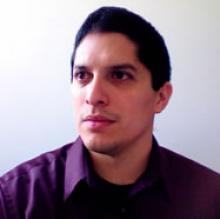What Is It
We seem to be able to decide our behavior for ourselves – what we do is up to us. But if everything that we do can be explained by physics, does this leave room for freedom? Are all of our actions pre-determined? Are we slaves to fate? Is freedom compatible with determinism, or does science teach us that we're nothing but complex machines, following out a complicated program that a good enough physicist could have predicted centuries ago? And what are the implications for morality and responsibility? John and Ken exercise their will with Manuel Vargas from the University of San Francisco.
Listening Notes
In this episode, John and Ken discuss challenges to free will. Sure, all of us have the occasional day where free will seems like a questionable notion, but then what can we make of praise, blame and personal responsibility? Are there reasons to think we’re less free than most of us generally suppose?
Think about Adam and Eve. Were they free to eat the apple? Well, surely they made the decision, but couldn’t God have seen that coming? And if God did see it coming, what does that say about the nature of their decision? After all, if their decisions are caused by events in their brains, and those are caused by events in the distant path, what does the choice really mean?
Manuel Vargas, a local expert on the free will debate, comes to help John and Ken think through these issues. Manuel was initially drawn to free will when he began thinking about how we attribute praise and blame, and his fascination increased when his teachers seemed to teach him contradictory lessons about the relationship between free will and determinism.
Basically, there are a few core positions. First, there’s libertarianism; this is the view that if the flow of events was predetermined, then we would not have free will, but the world is not predetermined—thus, we do have free will. Hard determinists believe that the world is predetermined, and thus, we do not have free will. Compatibilists, on the other hand, believe that free will and determinism are, well, compatible.
Manuel suggests that some of the disagreements come out of ambiguities in ordinary language. It seems like depending on how we interpret the word “can,” either libertarianism or determinism may seem more sensible. In fact, psychologists have shown that people’s intuitions about the same situation can vary based on how it is framed verbally.
One caller asks how the question of free will relates to real life, especially since it does not change our decisions. At this point, the three philosophers distinguish between determinism and fatalism; determinism is the notion that the world’s events are somehow causally fixed in place, whereas fatalism is the notion that there is some end state, and there is nothing we can do about it. Even if we lack free will, we need not be fatalists, and we can continue to think about decision in much the way we would otherwise.
So, what’s the final verdict? Well, these murky issues remain far from clear, but it seems that we may not have free will in the robust sense that we might naïvely imagine. But what does this mean for us? That’s something for you, the listener to chose.
- Roving Philosophical Report (Seek to 7:31): April Dembowsky checks in from an intercity school in East Oakland to tell us about free will and social determinism. A group of fourth grade students in a public school there are taking a ‘mindfulness’ class, which teaches them to stop and reflect every day. The teacher, Kate Janke, teaches the children to be kind on the playground, control their impulses, and concentrate on building their skills. To these children, mindfulness exercises can be the difference between living as a high school drop out or a college graduate.
- Philosophy Talk Goes To The Movies (Seek to 46:00): The Reader tells a morally complex tale of moral luck during the holocaust. Staring Ralph Fiennes, Kate Winslet, and David Kross, this film is filled with great performances and thought provoking issues. John and Ken give it two philosophical thumbs up.
